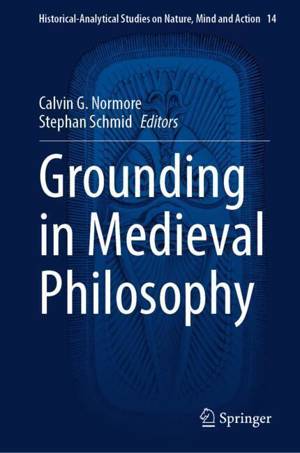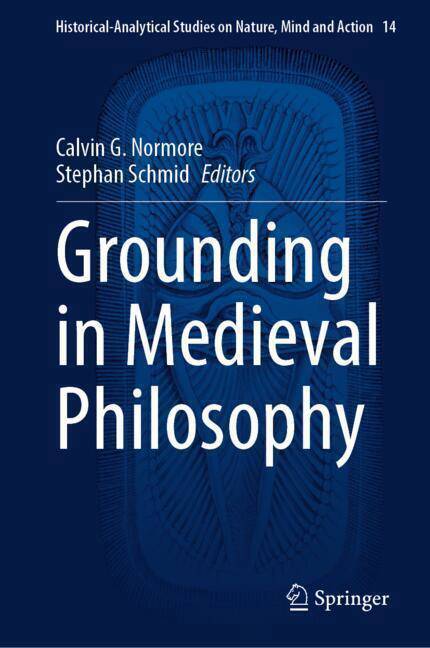
- Retrait gratuit dans votre magasin Club
- 7.000.000 titres dans notre catalogue
- Payer en toute sécurité
- Toujours un magasin près de chez vous
- Retrait gratuit dans votre magasin Club
- 7.000.0000 titres dans notre catalogue
- Payer en toute sécurité
- Toujours un magasin près de chez vous
Grounding in Medieval Philosophy
Description
This book offers a selection of 13 case studies on how the notion of grounding helps illuminate philosophical discussions of our past with a special focus on debates of the Middle Ages. It thereby makes not only the case that the notion of grounding, which has become so widely debated in analytic metaphysics, has a long and venerable tradition, but also shows that this tradition has a lot to teach to contemporary philosophers of grounding. This is because the historical authors discussed in this volume - that is, Aristotle, Fazang, Boethius, Avicenna, Abelard, Aquinas, Scotus, Ockham, Buridan, Suárez, Leibniz, and others - suggested different types of non-efficient-causal explanations which are to be carefully distinguished. This volume illustrates how philosophy and history of philosophy can be mutually illuminating by showing that the terminology developed in the contemporary debate about grounding can help reconstruct philosophical discussions from Antiquity up to the Early Modern Period, and that these very discussions enrich, and in part challenge the contemporary debate about grounding. In this vein, it is an important reading for everyone interested in the history of grounding and the philosophical insights that this history might have left to us.
Spécifications
Parties prenantes
- Editeur:
Contenu
- Nombre de pages :
- 333
- Langue:
- Anglais
- Collection :
- Tome:
- n° 14
Caractéristiques
- EAN:
- 9783031536656
- Date de parution :
- 10-05-24
- Format:
- Livre relié
- Format numérique:
- Genaaid
- Dimensions :
- 156 mm x 234 mm
- Poids :
- 657 g

Les avis
Nous publions uniquement les avis qui respectent les conditions requises. Consultez nos conditions pour les avis.





